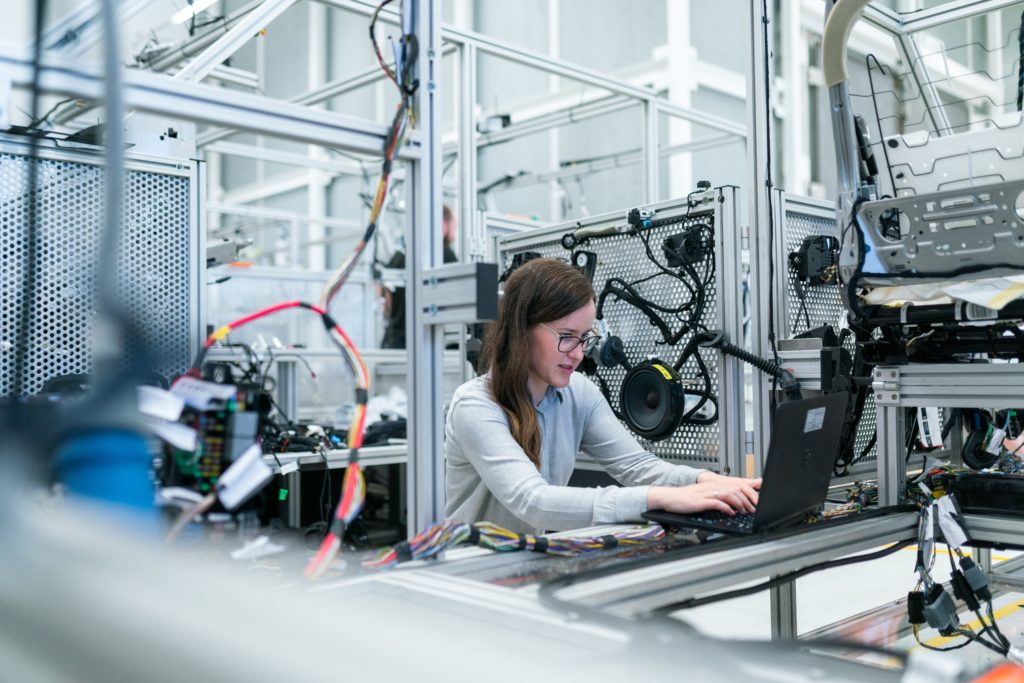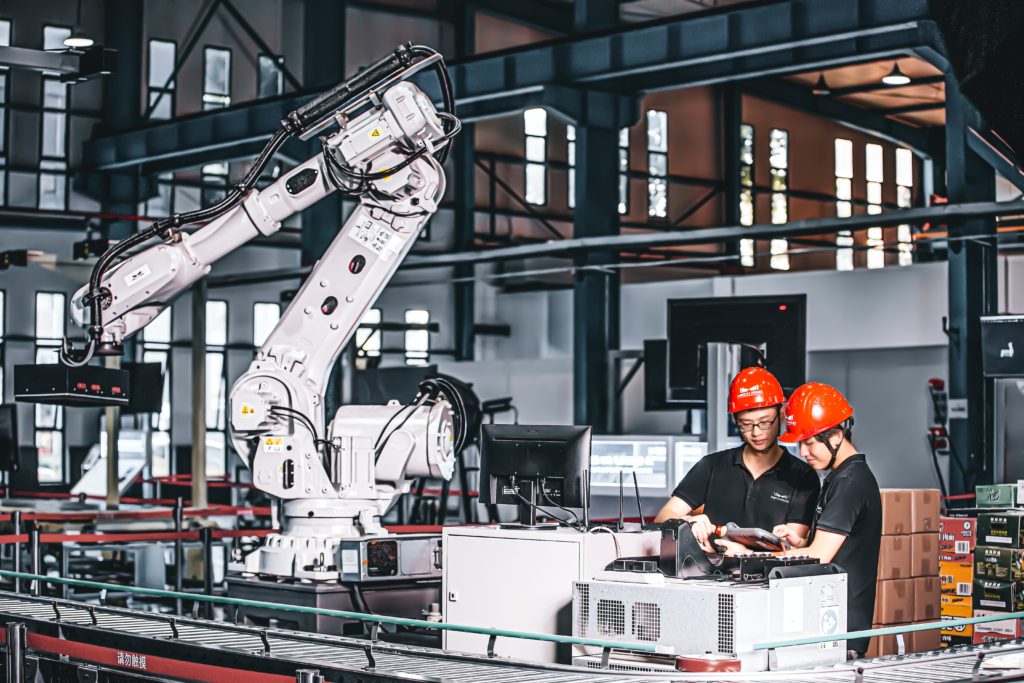
Reen Blake-Carr reviews the risks and opportunities of technological disruptions in the manufacturing sector in Birmingham. This blog post was produced for inclusion in the Birmingham Economic Review for 2022. The annual Birmingham Economic Review is produced by the University of Birmingham’s City-REDI and the Greater Birmingham Chambers of Commerce. It is an in-depth exploration of the economy of England’s second city and a high-quality resource for informing research, policy and investment decisions. This post is featured in Chapter 2 of the Birmingham Economic Review for 2022, on business and disrupted markets. Read the Birmingham Economic Review. Visit the WMREDI Data Lab to find out more about Birmingham.
Disruptive innovation
Clayton Christensen, the author and creator of disruption theory defines a disruptive innovation as:” a product or service designed for a new set of customers”. Further clarification is that technology disruption is the advent of a new or existing technology that is used and/or created in such a way that it renders the incumbent obsolete over years or decades. The Harvard business review often describes the business model rather than the technology itself disturbing the market or value network, creating new markets in its new wake. An example of this would be in the 1970s when IBM developed the personal computer which disrupted the market for type-writers and mainframe computers, by bringing computers to the general public. The personal computer has since been disrupted by laptops and smartphones.
Birmingham – a hub for technological innovation
Birmingham is well known for its manufacturing sector for many years, although in recent years the sector has seen a decline due to various factors like businesses moving their operations abroad for cheaper costs on supplies, production etc. However, in recent years the city has become a hub for technology innovation, especially with the recent creation of an innovation hub at Tyseley Energy Park.
Innovation is at the forefront of the Birmingham technology scene and can present plenty of opportunities for sectors, such as manufacturing to improve their productivity and efficiency, but whilst this kind of technological disruption can provide plenty of opportunities it can also present/highlights risks that can impact manufacturing negatively and hinder its performance.

The impact on manufacturing
With the advent of technological change impacting the manufacturing sector, there becomes some key risks with the adoption of technology in places where human hands have been producing goods for hundreds of years. In terms of automating industrial control systems in a 2016 survey, 31% of manufacturing respondents admitted they had never performed a cyber risk assessment of their industrial control systems.
While automation of these control systems does present some opportunities for growth in terms of increased output and a more efficient production line, enabling manufacturing firms to remain competitive in these difficult times. It also is worrying that a lot of manufacturing firms have not conducted a risk assessment as not doing this leaves security vulnerabilities unresolved and can actually increase the risk of hackers tampering with systems or even shutting down an entire production line until demands or payment are met. If companies do not perform adequate risk assessments on their technology it could cause further issues down the line in that many firms may have to close down due to them being unable to compensate for losses incurred or time lost from having their production lines shut down.
Electric Car Batteries
The manufacturing of electric car batteries is being explored and developed to keep in line with the government’s 2030 target of only electric vehicles being sold and petrol ones will cease being sold. Electric car batteries are not a new concept but with the announcement of the government plans of only EVs being sold, to keep in line with the UK target of being net zero by 2050, larger companies such as Bentley motors and Jaguar are beginning to develop electric car batteries and smaller companies are beginning to do the same thing.

In particular, one company in Birmingham, Petalite, has developed the world’s fastest charging portable battery technology, there is an opportunity in this as it would allow charging technology to become more efficient and could improve on electric car battery design. Significantly reducing the charging time of vehicles or other technologies that require a portable charger, and as such, this would allow manufacturers to keep production lines running. Thus, enabling increased outputs and can safeguard against issues such as power failure which would affect their production output and competitiveness.
VR Technologies
VR technologies are being implemented into manufacturing at an increased rate to enable more efficient business operations. A few opportunities that VR technology allows for Birmingham’s manufacturing sector in terms of the automotive sector where assembly lines are common, VR can be used to plan factory floors so manufacturers can see everything is placed correctly and connected and as such using VR can help save with costs and reduced the risk equipment damage or worker injury. An example of businesses doing this is Daden. They specialise in Virtual Reality technology and if this type of disruptive technology could be further integrated in the manufacturing sector, it would allow the training of workers on hazardous or complex design processes to become more efficient and can save on training costs.
Another example of the opportunities VR technology offers can be demonstrated by Ford motor company which uses an immersive vehicle environment VR-tool that allows engineers to check 3D new car models. It is less expensive to produce than a real car and easier to modify if the inspection finds any flaws, thus saving in costs and reducing the number of materials wasted.
This blog was written by Reen Blake-Carr, Policy and Data Analyst, City-REDI / WMREDI, University of Birmingham.
Disclaimer:
The views expressed in this analysis post are those of the authors and not necessarily those of City-REDI / WMREDI or the University of Birmingham.
